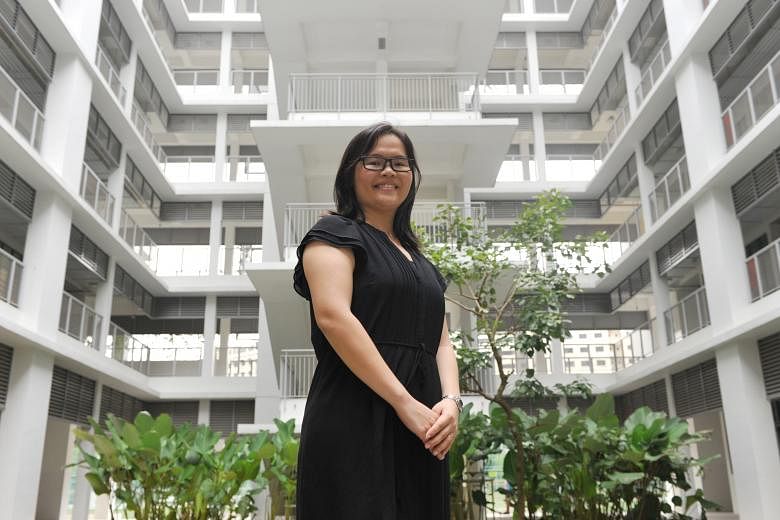Some people around Ms Teo Siew Kuang thought it was an unusual decision for her to move from Raffles Institution (RI) to Spectra Secondary School two years ago.
After all, the 31-year-old had studied at Raffles Junior College from 2002 to 2003, and was teaching alongside her former teachers.
After two years teaching art in RI, Ms Teo, who was trained to teach art and English, decided to look for a post that would let her focus on teaching English. That was when she found Spectra, the second specialised school here for Normal (Technical) students.
"I liked how the school was to meet the needs of our profile of students," said Ms Teo, who majored in theatre studies at the National University of Singapore and joined the education service in 2008.
"I think it is good that we also dedicate resources to help students succeed across the spectrum."
Spectra Secondary in Woodlands took in its first batch of 200 students in 2014. Students learn vocational skills such as mechanical servicing and retail services, on top of English, mother tongue languages and mathematics.
Ms Teo, who joined Spectra in 2014, was cited by Acting Minister for Education (Schools) Ng Chee Meng in Parliament earlier this month as an example of educators who have the passion to teach underprivileged students.
He was responding to Non-Constituency MP Daniel Goh, who had asked if Singapore would consider a programme to match exceptionally motivated teachers to underprivileged students.
Mr Ng said this already exists. Teachers at specialised schools for the less academically inclined, such as Spectra Secondary, Crest Secondary, Assumption Pathway School and Northlight School, are carefully selected. Many of them want to help students on the lowest rung discover their interests and abilities.
Ms Teo, who teaches English at the Secondary 3 level, said the main difference between Spectra and RI is that their students are from different socio-economic backgrounds.
"In RI, my students had packed schedules from the start of school until 6pm to 7pm, and even had tuition classes at night. They are very well-occupied during the holidays with camps, projects and events.
"Most came from families with stable structures and do not require financial assistance," she said.
Teacher is a 'big sister' or 'mum' to students
In contrast, close to half of Spectra's student population is on financial aid, with a significant percentage from single-parent backgrounds or in the care of guardians or even institutionalised homes, Ms Teo said.
"Many of them like to hang out in school after classes because they would rather be with friends than at home. They tell us they actually look forward to coming to school, especially during holidays, because they are so bored at home," she said.
She treasures the relationships forged with students over lunch breaks, morning assembly games and class outings, among others.
"Initially, I was worried about not having prior experience with Normal (Technical) students," she said.
But she realised students can sense if teachers care about them. "Once they know you care, they reciprocate in their own ways.
"Often, disruptive behaviour has other underlying reasons that we need to dig deep to find out," she said, recalling a lower secondary student who could be quite disruptive.
"Once, he stubbornly refused to wear long pants for our Equine Assisted Learning programme which involves riding. Later, we realised he was afraid that he would be too heavy to get on the horse," said Ms Teo. "We managed to assure him before he overcame his fears and enjoyed the rest of the riding lessons."
From being an "older sister" or even a "mother", to helping students with special needs and finding out what teaching methods work best, it has been a learning experience for Ms Teo.
"Each school has its challenges. Over here, our students generally have challenges in handling social-emotional issues," she said.
"Many have challenging home environments and life stories. Sometimes, I am at a loss as to how to respond and help them. This is where I draw support from my colleagues and school leaders. It takes a village to raise a child."


